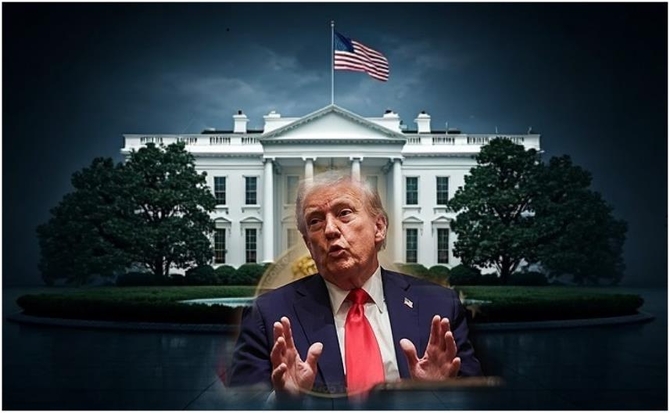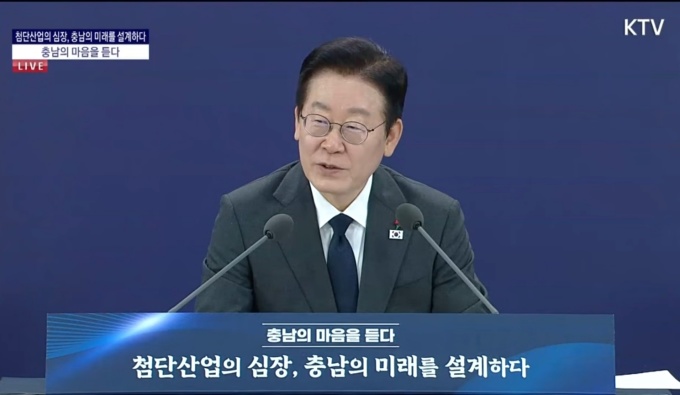
새벽 단상으로 불편한 비판을 할까 한다. 나는 한국 사람들을 도저히 이해할 수가 없었다. 국제관계는 철저히 실익으로 따지는 것인데 한국 사람들은 국제 간의 실익보다 감정이 우선이고 익숙하던 것들만 하려고 한다. 공연히 모험하다가 실패하는 것을 두려워하고 했던 것, 익숙한 것만 할려고 하니 거기에서 이미 바닥을 보이고 있는데도 다른 것을 찾을 생각 자체를 안 한다. 그러니 각종 근거와 지표를 갖다 줘도 무시하거나 거들떠도 보지 않는다.
그러면서 친중, 친미에만 무게를 두고 앵무새처럼 주장하며 그들이 마치 우리의 모든 면을 풍성하게 해줄 것처럼 믿는다. 나라가 잘 살고 실질적인 이익을 얻어야 한다는데 그걸 그렇게 싫다고 하는 나라와 사람들을 한국에서 처음 봤다. 오히려 실익적인 부분을 배격하고 이익을 얻고 있는 나라를 밀어내고 그들을 욕하기까지 한다. 다른 나라들은 하나라도 얻을려고 난리를 치는데 한국 사람들은 뭘 얻는 것을 싫어하는 것 같다. 정말 특이하다고 느끼고 있다.
그 이유를 유추해 본다면 중근세 역사에서 한국은 실리외교 및 국가 간의 이해득실을 따지며 실익을 챙기는 역사적 경험이 부족하다고 생각된다. 고려 시대까지만 해도 벽란도에 공관을 두고 동북아시아로 들어오는 물목들을 중국 송나라 및 금나라, 원나라와 일본 등으로 가볍게 중개해주고 그로 인한 실익까지 계산했었다. 나는 한국사에 있어 진정한 "동북아시아의 팍스 코리아나"를 실현한 나라를 고려로 본다. 북방의 패권을 두고 다투는 거란 요나라와의 전쟁에서 대승을 거두고 북방의 패권을 쥐다시피 했다.
고려와의 전쟁에서 패한 이후, 발해를 무너뜨리고 북방의 패자를 자처했던 거란 요나라는 서서히 북방에서 힘을 잃어갔다. 승자인 고려는 송나라로부터 막대한 물목을 벌어들였고 여진과 일본에게서 조공을 받았으며 동남아, 멀리 중동의 상인들도 고려까지와서 진정한 해상 실크로드를 실현하여 동북아시아 해상 교역을 완전히 장악했다. 1010년부터 여진이 세력을 확장한 1110년에 이르는 약 100년의 기간동안 고려는 동북아시아의 실질적인 주인이었다.
우리가 동북아시아 해상 교역 및 세력을 잃게 된 때는 조선 시대 부터다. 이성계가 위화도 반란에 이은 불법 쿠데타로 고려를 뒤엎고 중국 명나라에 사대하는 동안 우리는 고려가 갖고 있던 해상 패권을 고스란히 명나라에게 넘겼다. 이 때부터 조선은 국가 간의 국제 정치에서의 실리 및 이해득실을 따지는 부분에서 멀어졌던 것이고 상공업을 천시하면서 오로지 중국을 섬기는 사대주의를 대의(大義)로 여겼다. 국가의 근간을 이루는 농업과 상공업자들을 개차반으로 생각하니 국가의 근간이 약해지기 시작했고 임진왜란과 병자호란을 겪었어도 이와 같은 행태는 나아지지 않았다.
그러면서 세상은 변화했고 서양이 대항해시대를 열면서 식민지를 확보했다. 그리고 산업혁명이 성공가도를 달리게 되면서 동북아시아에도 위기가 찾아왔다. 그런 가운데 가장 빨리 그와 같은 변화를 감지한 나라는 일본이다. 일본은 비록 미국에 의해 1853년에 강제 개항을 했지만 이를 수치로 받아들이지 않고 서양의 문물을 흡수해 빠르게 낙후된 것을 개선해 나갔다. 상공업의 발달이 부국강병을 갖고 온다는 이치를 일본이 먼저 깨달은 것이다.
그렇게 세상이 변했는데도 조선은 여전히 변하지 않았다. 상공업을 천시했기에 실리와 국익을 따지는 것도 천한 장사치가 하는 행위라 생각하여 배격했고 국가의 이해득실을 따지는 것도 천하게 여겼다. 조선은 오로지 중국에 대한 사대주의와 공자님의 나라만을 바라보고 있었던 한심한 체제였던 것이다. 그 결과 먼저 깨달아 열강의 위치에 올라선 일본의 목표가 되었고 결국 우리는 일제 치하에 있어야 했다. 그럼에도 우리는 여전히 변하지 않았다. 모험심은 줄어들고 실패하면 남탓만 하고 있다. 최근에는 국익이 밥먹여 주냐는 한심한 자들도 보았다.
상공업을 천시하며 실리와 국익을 따지는 것이 천한 장사치가 한다 생각했던 조선과 작금 대한민국은 하나도 다르지 않다고 생각한다. 미국과 중공, 러시아, 일본 사이에서 고도의 국제정치적 계산으로 이해득실을 따져가며 실리를 찾아야 하는데 이 얘기는 여전히 귓등으로도 듣지 않고 있다. 오로지 감정에만 취해서 기분 좋으면 우방이고 기분 나쁘면 적국이라 욕 쳐대고 있는 꼴들을 보면 딱 그러하다. 한국 사람들은 개개인적으로 실익을 따지고 이해득실 따지는 것을 월등히 좋아하지만 국익을 따지는 것은 그다지 좋아하지 않는다. 그 이유는 국익이라는 것이 개인에게 직접적으로 도움이 되지 않는다고 판단하기 때문이다.
그런데 국익이라는 것은 국가를 부강하게 만드는 것이고 국가가 힘을 갖는 것이다. 국가가 힘을 가지면 개인의 이익을 적극적으로 보호할 수 있다. 국가가 없는 국민은 존재할 수 없고 국가가 힘이 없으면 개인의 이익을 남에게 털리더라도 보호를 받을 수 없다. 그러므로 국가의 이익은 곧 국민 개인의 이익을 서로 악어와 악어새처럼 공존할 수 있는 역할을 하게 해준다. 우리 기업이 러시아에게 외화를 많이 벌고 있고 러시아 또한 자국의 이익되니까 한국의 투자를 받아들이는건데 이번 전쟁이 아니면 어디 붙어있을지도 모르는 나라인 우크라이나가 러시아를 대체할 수 있을거라고 생각하나?
그렇게 물어보면 생각없이 우크라이나에 투자하면 되지라는 사람도 셀 수 없이 많다. 어떠한 실익과 이유 때문에 투자하냐 물어보면 거의 99.99%가 강대국 러시아의 침공을 받아 불쌍하니까라고 대답한다. 러시아는 우리와 비행기 타면 2시간 거리고, 우크라이나는 9,000km나 떨어져 있어 직접적인 투자관계 설립 및 국제 관계상으로 가까이 지내는게 쉽지 않다고 얘기해도 귀를 막고 고집을 부린다. 왜 이런 근성이 나오는지 참 이해불가에 알 수 없는 노릇이라 이제는 기이하게 생각하고 있다. lukybaby7@gmail.com
*필자/ 정길선.
노바토포스 회원, 역사학자, 고고인류학자, 칼럼니스트, 러시아 과학아카데미 유라시아 고고인류학연구소 연구교수.
*아래는 위 기사를 '구글 번역'으로 번역한 영문 기사의 [전문]입니다. '구글번역'은 이해도 높이기를 위해 노력하고 있습니다. 영문 번역에 오류가 있을 수 있음을 전제로 합니다.<*The following is [the full text] of the English article translated by 'Google Translate'. 'Google Translate' is working hard to improve understanding. It is assumed that there may be errors in the English translation.>
International relations are strictly based on practical interests, and some Koreans place emotions ahead of international practical interests.
-Jeong Gil-seon, columnist
I would like to make some uncomfortable criticism during my early morning remarks. I could never understand Korean people. International relations are strictly based on practical interests, but Koreans put emotions ahead of international practical interests and try to only do things they are familiar with. They are afraid of failure while trying too hard, and they only try to do what they have already done and are familiar with. Even though they are already at the bottom, they do not even think about looking for something else. Therefore, even if various evidence and indicators are provided, they do not ignore or pay attention to them.
At the same time, they only focus on being pro-China and pro-US, making parrot-like claims and believing that they will enrich us in all aspects. It was the first time in Korea that I saw a country and people who said that the country should live well and make real profits, but they hated it so much. Rather, they reject practical interests, push out countries that are benefiting from them, and even criticize them. Other countries are making a fuss to get at least one thing, but Koreans seem to hate getting anything. I feel it's really unique.
If we were to infer the reason, it would seem that Korea lacked the historical experience of pragmatic diplomacy and weighing the pros and cons of interests between countries in medieval and modern history. Until the Goryeo Dynasty, an embassy was established in Byeokran Island, and goods coming into Northeast Asia were lightly brokered to China's Song Dynasty, Jin Dynasty, Yuan Dynasty, and Japan, and even calculated the actual benefits. In Korean history, I see Goryeo as the country that realized the true “Pax Koreana of Northeast Asia.” In the war over the northern hegemony, they won a major victory against the Liao Dynasty and almost took over the northern hegemony.
After losing the war with Goryeo, the Khitan Liao Dynasty, which overthrew Balhae and declared itself the loser of the north, gradually lost its power in the north. The victor, Goryeo, earned enormous amounts of goods from the Song Dynasty, received tribute from Jurchen and Japan, and merchants from Southeast Asia and as far as the Middle East came to Goryeo, realizing a true maritime Silk Road and completely dominating Northeast Asia's maritime trade. For about 100 years, from 1010 to 1110, when Jurchen expanded its power, Goryeo was the de facto master of Northeast Asia.
It was during the Joseon Dynasty that we lost maritime trade and power in Northeast Asia. While Lee Seong-gye overturned Goryeo with an illegal coup following the Wihwado Rebellion and dethroned China's Ming Dynasty, we handed over Goryeo's maritime hegemony to the Ming Dynasty. From this time on, Joseon moved away from the consideration of profit and loss in international politics between countries, looked down on commerce and industry, and regarded toadyism that served China only as the greater good. As the agricultural and commercial businesses that formed the foundation of the nation were thought of as a group of corrupt people, the foundation of the nation began to weaken, and even after going through the Japanese invasions of Korea and the Manchu War, this behavior did not improve.
At the same time, the world changed and the West opened the Age of Exploration and secured colonies. And as the Industrial Revolution was on the road to success, a crisis came to Northeast Asia. Meanwhile, the country that detected such changes the fastest was Japan. Although Japan was forced to open its ports in 1853 by the United States, it did not accept this as a shame and quickly improved its backwardness by absorbing Western culture. Japan was the first to realize the principle that the development of commerce and industry leads to wealth and strong military power.
Even though the world changed, Joseon still did not change. Because he looked down on commerce and industry, he thought it was the behavior of a lowly businessman to consider practical profit and national interest, so he rejected it, and he also considered it lowly to consider the interests of the country. Joseon was a pathetic system that only looked at the country of Confucius and toadyism toward China. As a result, it became the goal of Japan, which realized first and rose to the position of a great power, and ultimately, we had to remain under Japanese rule. Nevertheless, we still haven't changed. Their sense of adventure has diminished and they end up blaming others when they fail. Recently, I have also seen some pitiful people asking whether the national interest is what feeds them.
I don't think there is any difference between the Joseon Dynasty, which looked down on commerce and industry and thought it was only for lowly businessmen to consider practicality and national interest, and the Republic of Korea today. Between the United States, China, Russia, and Japan, we need to find practical benefits by weighing the pros and cons through advanced international political calculations, but this is still not being heard. This is exactly what happens when you look at people who are only drunk on emotions and criticize the country, saying that when they are in a good mood, they are an ally, and when they are in a bad mood, they are an enemy. Korean people are very fond of weighing personal interests and interests, but they do not like to consider national interests. The reason is that it is judged that national interests do not directly benefit individuals.
However, national interest is what makes a country wealthy and what gives the country power. When the state has power, it can actively protect individual interests. People cannot exist without a state, and if the state is powerless, they cannot be protected even if their personal interests are stolen from others. Therefore, the national interest allows the individual citizens' interests to coexist like a crocodile and a crocodile bird. Our companies earn a lot of foreign currency from Russia, and Russia also accepts investment from Korea because it is in its own interest. Do you think Ukraine, a country that might be stuck somewhere if not for this war, can replace Russia?
If you ask that question, there are countless people who say you can invest in Ukraine without even thinking about it. When asked about the actual benefits and reasons for investing, almost 99.99% of people answer that it is because they feel sorry for being invaded by the powerful Russia. Russia is a two-hour plane ride away from us, and Ukraine is 9,000km away, so even when we tell them that it is not easy to establish direct investment relations or stay close for international relations, they turn a deaf ear to us and remain stubborn. It's so incomprehensible why this kind of grit comes out, so now I'm thinking it's strange. lukybaby7@gmail.com
*Writer/ Jeong Gil-seon.
Novatopos member, historian, archaeological anthropologist, columnist, research professor at the Institute of Eurasian Archeology and Anthropology of the Russian Academy of Sciences.



![[북스&] 반도체 전쟁, 전략적 '기업외교'가 필요하다](https://newsimg.sedaily.com/2025/12/05/2H1M2OIFLH_1.jpg)

